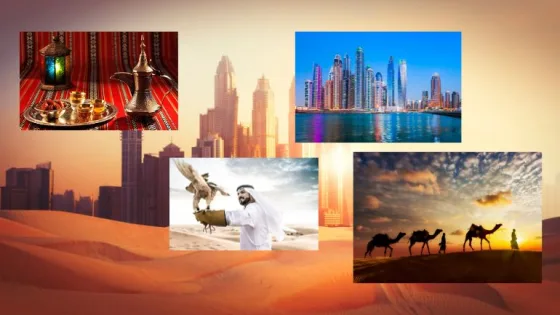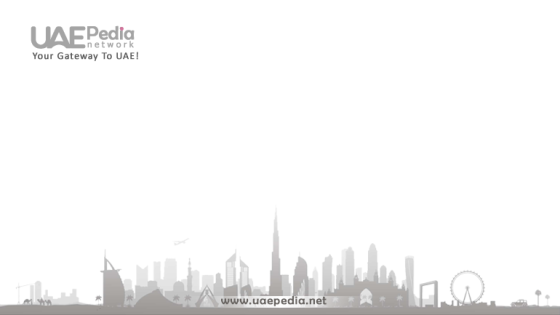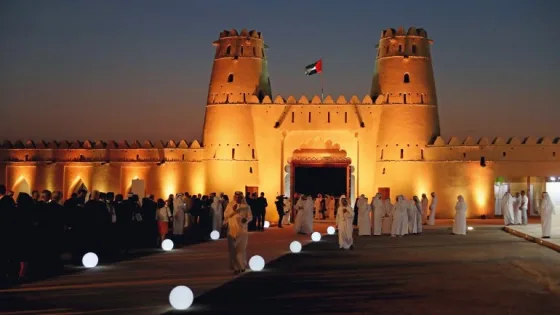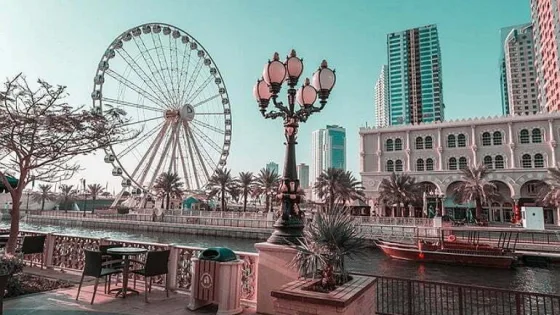Contents
Dubai history and culture are rich; its history has undergone a remarkable transformation in recent years from a small fishing village in the 18th century, it has become one of the world’s most modern and globally active cities. However, despite its modernity, the city has managed to preserve its rich history and culture. Dubai history and culture mainly revolve around religion. Dubai is a city of Islamic and Arab cultures. The city is the capital of the UAE, one of the wealthiest of the seven emirates that constitute the federation of the United Arab Emirates. Discover dubai beaches and incredible business event offerings.
Overview of Dubai history facts
Dubai history and culture have a long and storied heritage that stretches back to the dawn of civilization. Across the centuries, the region has seen many empires come and go, each contributing to shaping what is now modern-day Dubai.
The earliest recorded Dubai history and culture area dates back to the 3rd millennium BCE, but it is believed that the region played an important role in ancient trade networks across the Arabian Gulf.
By the 1600s, the Bani Yas tribe had set up a fishing and pearling village in what is now modern-day Dubai. In the early 19th century, the ruling Al Maktoum dynasty was established, and the city of Dubai continued to grow and develop.
As Dubai’s influence spread, the much larger Al Maktoum dynasty declared the Emirate of Dubai in 1833. This set the stage for what would become a pivotal era in Dubai history and culture, as the United Arab Emirates was formed in 1971 with the Emirate of Dubai at its core. Since then, the city has seen incredible amounts of growth and prosperity, now standing as one of the world’s premier cities of culture and tourism.
The beginning of Al Maktoum’s government in Dubai
Al Maktoum’s government in Dubai began in 1833 when the Al Maktoum dynasty took control of the city. The founder of the dynasty, Sheikh Maktoum bin Butti, established a settlement in the area that would later become Dubai. Over the years, the Al Maktoum family worked to develop Dubai history and culture, building infrastructure and establishing trade relationships with other countries. Today, Dubai is a thriving metropolis and a significant center of commerce and tourism in the Middle East.
check out: UAE visa for GCC residents
The leaders of the Emirate of Dubai through the years
Here is a brief insight into the leaders of the Emirate of Dubai over the years:
- 1833-1852: Sheikh Maktoum bin Butti
- 1852-1859: Sheikh Saeed bin Butti
- 1859-1886: Sheikh Hasher bin Maktoum
- 1886-1894: Sheikh Rashid bin Maktoum
- 1894-1906: Sheikh Maktoum bin Hasher
- 1906-1912: Sheikh Butti bin Suhail
- 1912-1958: Sheikh Saeed bin Maktoum
- 1958-1990: Sheikh Rashid bin Saeed Al Maktoum
- 1990-2006: Sheikh Maktoum bin Rashid Al Maktoum
- 2006-2022: Sheikh Mohammed bin Rashid Al Maktoum
These leaders have played an essential role in developing Dubai from a small fishing village to a global center for business, tourism, innovation history, and cultural heritage. Of course, They have influenced the history and culture of the UAE.
Read more about: Uae Transit Visa
Current Sheikh of Dubai
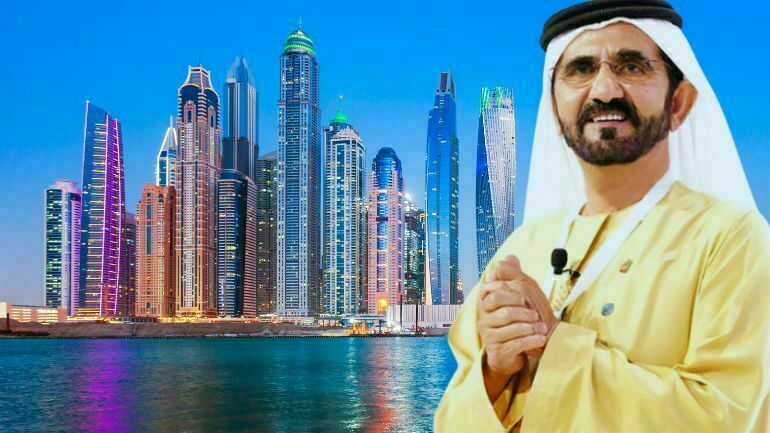
The current Sheikh of Dubai is Sheikh Mohammed bin Rashid Al Maktoum. He has a diverse and impressive curriculum vitae.
- He has held numerous positions in the government of Dubai, including serving as the Minister of Defense, the Minister of Finance, and the Chairman of Dubai World. Also he is the Vice President and Prime Minister of the UAE.
- In addition to his government roles, Sheikh Mohammed is a successful businessman and entrepreneur.
- He is the founder of Dubai Holding, a conglomerate that operates in various industries, including real estate, hospitality, and finance.
- The owner of Go Dolphin, a global thoroughbred horse racing and breeding operation.
- Sheikh Mohammed is a prolific author and poet, having published several books on various topics, including leadership, history, and poetry.
- He is also a philanthropist, having established numerous charitable organizations and initiatives to improve people’s lives in the UAE and worldwide.
Sheikh Mohammed bin Rashid Al Maktoum is a highly accomplished and respected leader, businessman, and philanthropist. He has contributed to the growth of history and culture in Dubai. He makes tourists visit Dubai for its skyscrapers.
You may be interested in: UAE visa for freelancers
The old and present Dubai culture rules
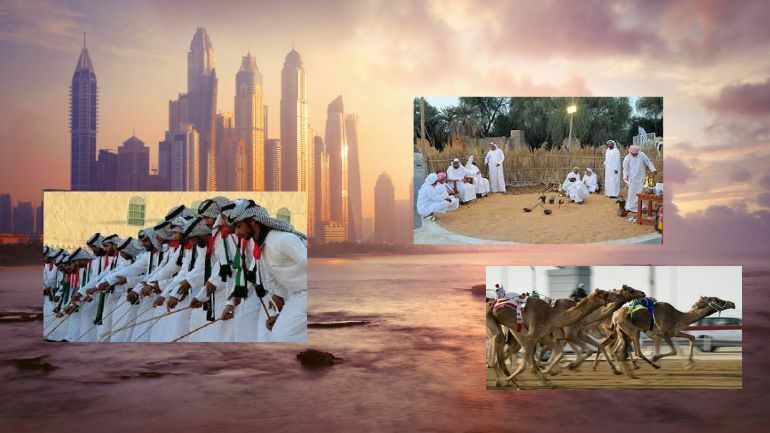
Dubai history and culture are a blend of traditional Emirate culture and modern influences from around the world. Dubai history and culture mainly revolve around the Islamic religion, Islam is the dominant religion in Dubai, and visitors should be respectful of local customs and traditions. During the holy month of Ramadan, Muslims fast from sunrise to sunset, and visitors should be aware that many restaurants and cafés may be closed during the day. Dubai history and culture are a unique blend of Dubai traditions and modernity, making it a fascinating destination for travelers worldwide. There are the 5 most important aspects:
Traditional Emirate art
Traditional Emirate art is a reflection of the country’s rich history, culture, and heritage. Emirati art is diverse and includes a range of mediums, including calligraphy, painting, weaving, and pottery.
- Calligraphy: One of the most prominent forms of Emirati art is the art of writing Arabic script. Calligraphy is considered a sacred art form in Islam.
- Weaving: which is used to create textiles and carpets.
- Pottery: This is also a basic form of Emirati art, and Emirati potters are known for their skill in creating beautiful and functional pieces.
Arabian hospitality of Dubai
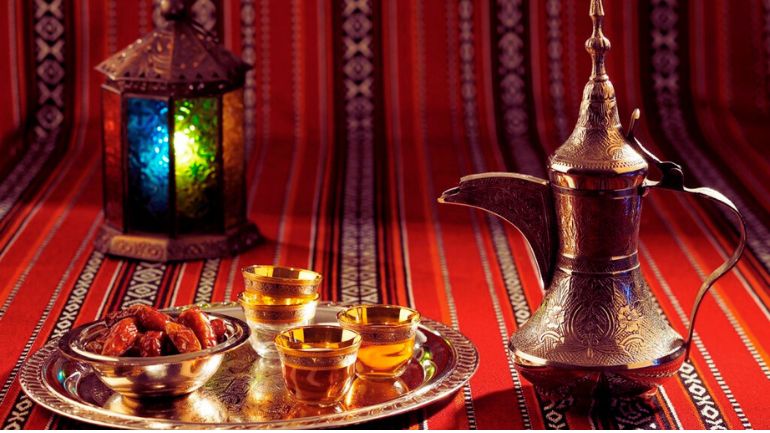
One of Dubai culture facts is Arabian hospitality, which is an integral part of Dubai history and culture. Visitors to the city can expect to be warmly welcomed wherever they go. Emirati hospitality is based on the principles of generosity, kindness, and respect for others.
In Dubai, hospitality is a tradition and a way of life. Emirates are known for their warm and welcoming nature, and visitors to the city are often invited to share a meal or a cup of coffee or gahwa with locals.
There are the most critical aspects of Arabian hospitality:
- “Majlis” is a traditional gathering place where people socialize, share stories, and enjoy each other’s company. The majlis is frequently found in hotels, shopping malls, and other public places in Dubai. Visitors are welcome to join in the conversation and experience the warmth of Emirati hospitality.
- “Tashreef” is another significant aspect, which means to honor or show respect to guests. Emiratis go out of their way to make their guests feel comfortable and welcome, and visitors to Dubai can expect to be treated with the utmost respect and kindness.
Heritage of Dubai
Dubai has a rich cultural heritage dating from thousands of years ago. The city’s heritage reflects its strategic location on the trade routes between Europe and Asia, making it a melting pot of cultures and traditions.
One of the most important aspects of Dubai’s heritage is its traditional architecture. The city is home to a number of historic buildings and structures, including the Dubai Museum, the Jumeirah Mosque, and the Al Fahidi Historical Neighborhood. These buildings are a testament to the city’s Arab culture and heritage and offer visitors a glimpse into the past.
Dubai’s heritage is also reflected in its traditional crafts and industries. Dubai history and culture relate to pearl diving, which was once a major industry in the region. Today, visitors can learn about this ancient art form by visiting the Dubai Pearl Museum.
Traditional crafts such as weaving, pottery, and calligraphy are also essential to Dubai’s heritage. Visitors can experience these crafts by visiting local markets and souks, purchasing handmade goods, and watching artisans at work.
In addition to its traditional heritage, Dubai is known for its modern architecture and luxurious lifestyle. The city’s iconic landmarks, such as the Burj Khalifa and the Palm Jumeirah, are a testament to its modernity and innovation.
Poetry and Dance in Dubai
Poetry and dance are important aspects of Dubai history and culture, and they are often performed at cultural events and celebrations in Dubai.
Poetry has a long history in the region, and Emirati poets are highly respected for their skill and creativity. Poetry is often recited at weddings, festivals, and other social events, and it is a way for Emiratis to express their emotions and share their stories.
Dance is also an essential part of Dubai history and culture, and traditional dances such as “Al Ayala” and “Al Razfa” are still performed today. These dances are often accompanied by traditional music and are a way for Emiratis to celebrate their cultural heritage.
In addition to traditional poetry and dance, Dubai is home to a vibrant contemporary art scene. The city hosts a number of cultural events and festivals throughout the year, including the Dubai International Poetry Festival and the Dubai International Dance Festival.
Poetry and dance are important aspects of Dubai history and culture. Visitors to Dubai can experience these art forms by attending cultural events and festivals in the city, whether traditional poetry and dance or contemporary arts.
Traditional Dubai sports
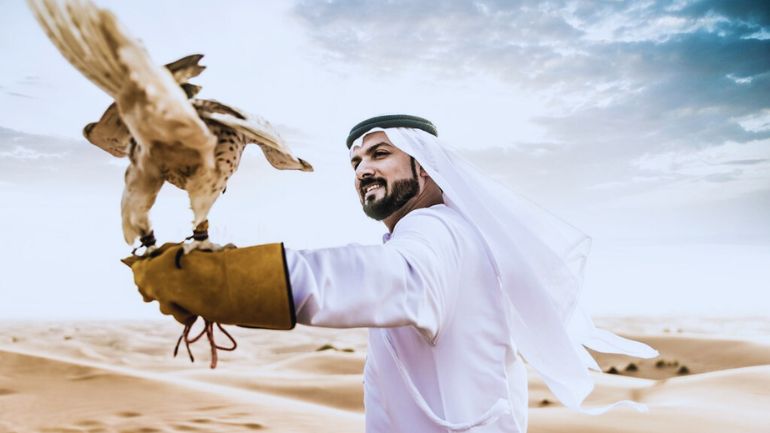
Traditional sports have played an important role in Dubai history and culture for centuries, and Dubai is no exception. These sports are a reflection of Dubai history and culture, and many of them are still practiced today.
- Camel racing is a traditional sport that dates back to the 7th century and is still a popular pastime in Dubai. The races are held in specially designed tracks, and the camels are ridden by jockeys who are often children.
- Falconry is the art of training and hunting with falcons, which has been practiced in the region for centuries. Falconry is still a popular sport in Dubai, Which reflects Arabs Dubai history and culture.
- Horse racing: is also a popular traditional sport in Dubai. The Dubai World Cup is one of the world’s most prestigious horse racing events, attracting top horses and jockeys from around the globe.
- In addition to these traditional sports, Dubai is home to various modern sports, including golf, tennis, and football. The city has world-class sports facilities and hosts a number of international sporting events throughout the year.
Read also: UAE Culture: Rich and Diverse Culture of the United Arab Emirates
Dubai’s most important tourist areas
Dubai is one of the most popular tourist destinations in the world, and history of Dubai tourism is great, it is home to many famous tourist areas. Here are some of the 7 most important tourist areas in Dubai:
- Burj Khalifa: It is the highest building in the world and offers a breathtaking view of the city.
- Dubai Mall: It is one of the largest shopping centers in the world and features many shops, restaurants, and famous tourist attractions, such as the Dubai Aquarium and the Dubai Fountain.
- Palm Jumeirah: it’s one of the most famous tourist areas in Dubai and is home to many luxurious hotels, restaurants, and famous tourist attractions.
- Dubai Parks and Resorts: Are one of the largest theme parks in the world and features many rides, restaurants, theaters, and famous tourist attractions.
- Dubai Museum: is one of the most important museums in the region and features many exhibits that reflect history and culture of Dubai.
- Gold Souk: The Gold Souk in Dubai is one of the most famous markets in the region and features many shops that sell jewelry and precious stones.
- Dubai Creek: A natural saltwater creek that divides the city into two parts – Deira and Bur Dubai. It is surrounded by heritage sites, markets, restaurants, and resorts. Tourists can experience the creek by taking an abra water taxi ride or dhow cruise dinner.
What is the history behind Dubai?
Dubai history and culture is about a small fishing and trading village ruled by the Al Abu Falasa clan, a branch of the Bani Yas tribe. In the late 19th century, it became a central hub for regional trade and commerce. In 1833, Dubai came under the control of the Al Maktoum family, which still rules the city today. Dubai’s growth and development continued in the 20th century, particularly after the discovery of oil in the region in the 1960s. The city used its oil wealth to diversify its economy and invest in infrastructure, becoming one of the world’s most modern and cosmopolitan cities.
What is the main culture of Dubai?
Dubai has a diverse and cosmopolitan culture due to its status as a global business and tourism hub. The official religion is Islam, and Arabic is the official language. However, English is widely spoken and understood, and many other languages are spoken by the city’s large expatriate population. Dubai’s culture is influenced by traditional Islamic and Arab customs, but it is also heavily influenced by Western culture, particularly in areas such as fashion, music, and entertainment. The city is known for its luxurious shopping malls, modern architecture, and vibrant nightlife. Hospitality and respect for others are important values in Dubai history and culture.
Dubai history and culture are great, plus its cultural heritage. Dubai is home to many famous tourist areas, and it offers a unique and diverse tourist experience for visitors from all over the world. It is a cosmopolitan city that attracts millions of visitors every year to see Dubai history and culture.
